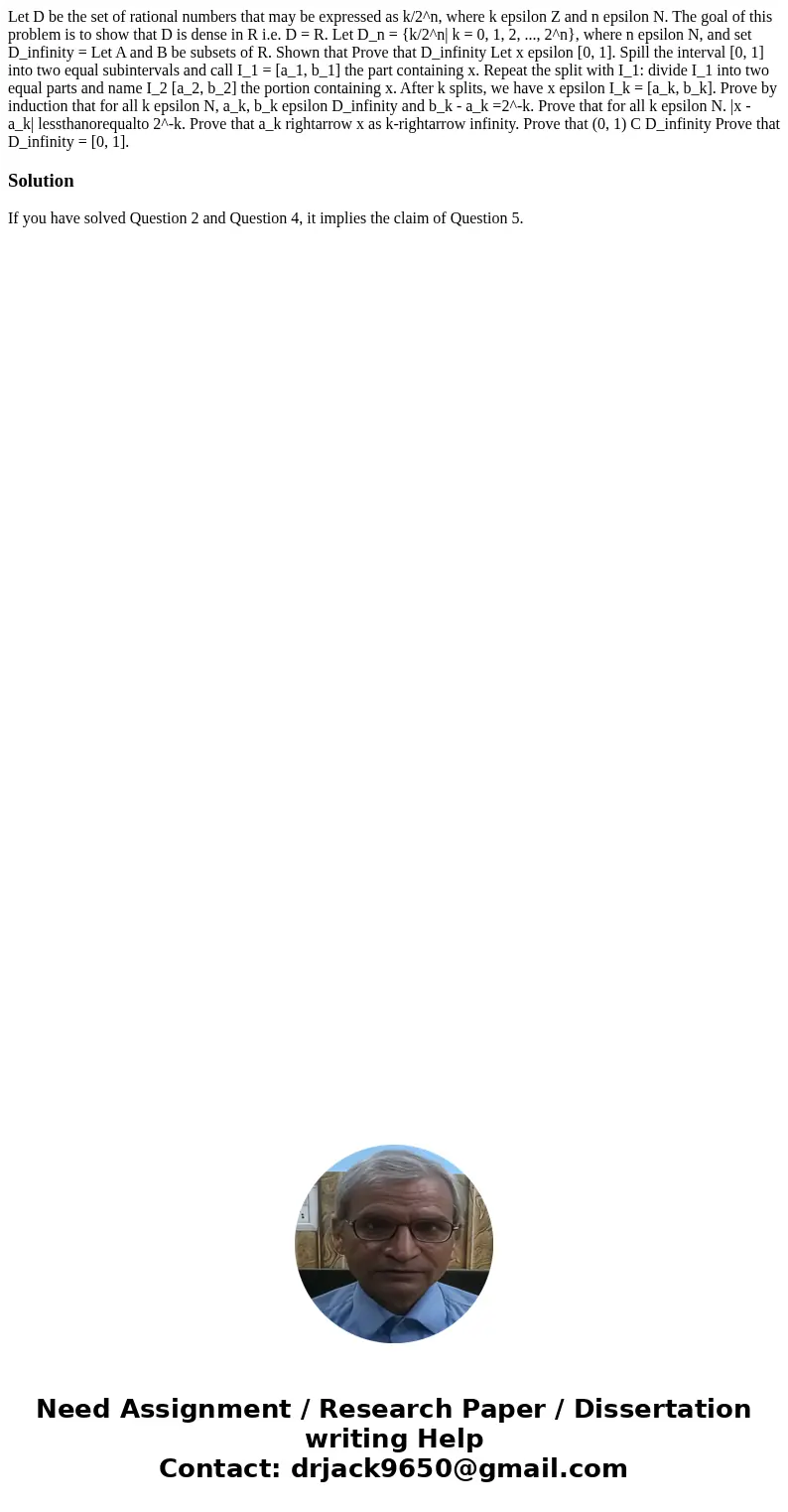Let D be the set of rational numbers that may be expressed a
Let D be the set of rational numbers that may be expressed as k/2^n, where k epsilon Z and n epsilon N. The goal of this problem is to show that D is dense in R i.e. D = R. Let D_n = {k/2^n| k = 0, 1, 2, ..., 2^n}, where n epsilon N, and set D_infinity = Let A and B be subsets of R. Shown that Prove that D_infinity Let x epsilon [0, 1]. Spill the interval [0, 1] into two equal subintervals and call I_1 = [a_1, b_1] the part containing x. Repeat the split with I_1: divide I_1 into two equal parts and name I_2 [a_2, b_2] the portion containing x. After k splits, we have x epsilon I_k = [a_k, b_k]. Prove by induction that for all k epsilon N, a_k, b_k epsilon D_infinity and b_k - a_k =2^-k. Prove that for all k epsilon N. |x - a_k| lessthanorequalto 2^-k. Prove that a_k rightarrow x as k-rightarrow infinity. Prove that (0, 1) C D_infinity Prove that D_infinity = [0, 1].
Solution
If you have solved Question 2 and Question 4, it implies the claim of Question 5.

 Homework Sourse
Homework Sourse